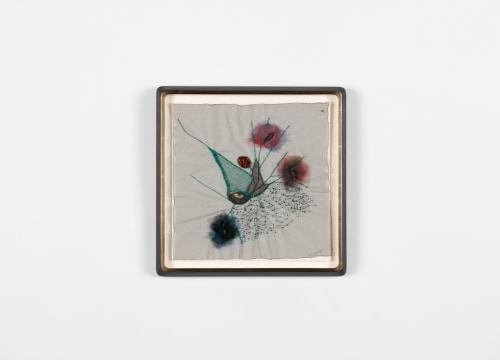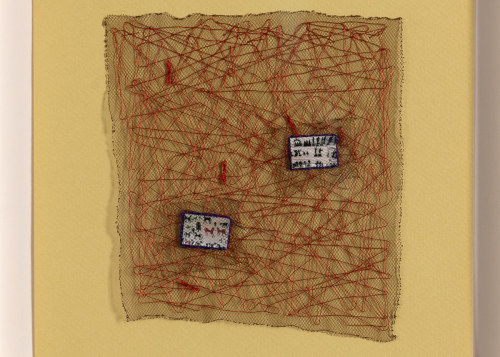

Ani Afshar was born in Istanbul in 1946. As a child, she was sent to boarding school in Switzerland, and after finishing her studies, she moved to Chicago where her husband attended university. Thereafter Afshar lived in Iran for several years before, in 1979, returning to Chicago for good.
She navigated emotionally, as well as physically, among these four cultures, and in many ways her work serves as an intimate portrait of her early, peripatetic life.
This highly personal work includes wool wall hangings, shawls, bedspreads, pillows, and beaded and woven jewelry. However, while the artist’s works encompass a wide range of contextual, intellectual, and emotional influences, the ancient tribal weavings and textile traditions of Turkey and the Near East were of particular interest to Afshar.
In his 1987 essay on Afshar, Richard Born of the Smart Museum of Art said, “Her works are an inextricable blending of all these diverse cultural experiences, and they are at once avant-garde and traditional and evince an identifiable originality founded in the artist's own personal vision, taste, and sense of propriety.”
More recently, gallerist Benoist F. Drut has said, “there’s a deep-felt connection and appreciation for the aesthetic principles of this rich, old textile heritage. She has found a unique way to incorporate bits of history into her works. There is something so beautiful about the way she gives pieces of history a new life and new purpose.”
Indeed, though rooted in the history of near-eastern textile craft, Afshar was fearless in her experimentation, and reveled in the unexpected. She was forever shifting effortlessly from subject to subject; exploring materials as far afield as tulle, beadwork, embroidery, and heirloom cloth; and producing work at every scale.
As Born said, “She does not imitate or merely copy the outward appearances of such weavings, but instead she imbues her own highly individual work—whether wool hangings, shawls, bed spreads, pillows or beaded and woven jewelry—with her deep felt understanding and appreciation of aesthetic principles operative in this rich age old textile heritage.”
Afshar passed away in 2024.
